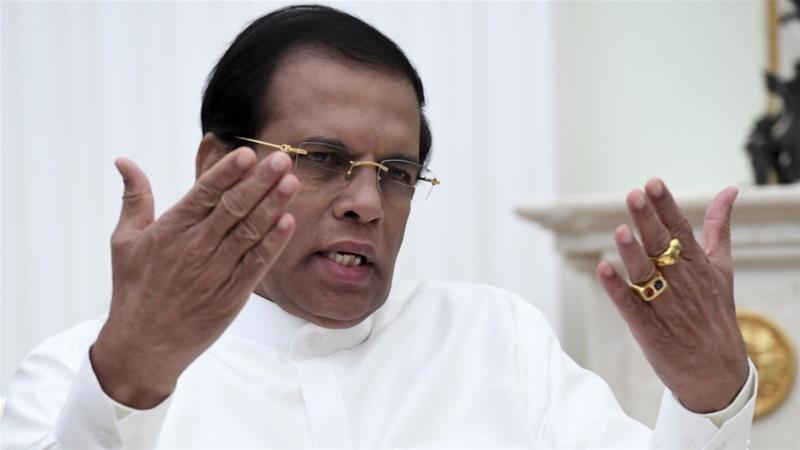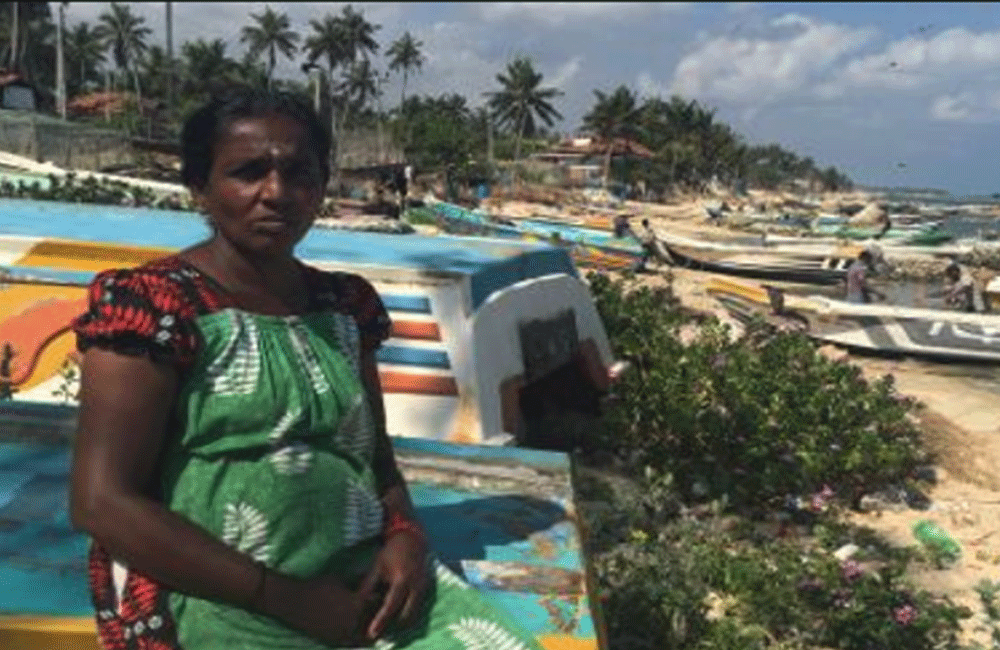In what many see as a discriminatory move towards women, President Maithripala Sirisena of Sri Lanka has reversed a decision by his finance minister, Mangala Samaraweera, to allow women to buy alcohol for the first time since 1955.
The president's office also ordered the cancellation of the gazette notifications from the ministry of finance that would have allowed women to work in bars without a permit and paved the way for licensed alcohol shops to operate for longer hours.

The president's intervention came after an apparent backlash from a sector of the Buddhist population [Kirill Kudryavtsev/Reuters]
The president's intervention came after an apparent backlash from a sector of the Buddhist population.
But women's rights activists and many Sri Lankans on social media have criticised the move that they say is discriminatory to women.
Thyagi Ruwanpathirana, a human rights activist based in Colombo, asked "why there is any interest in 2018 to impose on women laws that don't apply to men".
"It is patriarchy at its best, implying that women are unfit to make decisions for themselves," she said.
'Against the equality principle'
The issue has also highlighted fissures within the ruling coalition.
"I am against the discrimination of women in Sri Lanka. This whole alcohol ban is unfair and against the equality principle. Ban men too then," Deputy Minister for the Ministry of National Policies and Economic Affairs Harsha De Silva tweeted.
These developments take place ahead of crucial local elections scheduled to take place next month under a new voting system that combines both the first past the post and proportional representation systems.
The new electoral method also makes it mandatory for the first time that all parties include at least 25 percent women on their list of nominated candidates.
The mayoral candidate of the United National Party (UNP) - the coalition partner of Sirisena’s Sri Lanka Freedom Party (SLFP) - for Colombo is a woman.
Sri Lanka's social media landscape is predominantly occupied by urban populations who are more sensitive to gender issues, but the majority of the president's desired voter base are rural Sinhalese Buddhists who reside outside of Colombo.
"The president will not be unpopular because of these specific decisions across the country, possibly as a reflection of the fact that sensitivity to gender issues is not felt right across the country as it is felt in major cities like Colombo," Kalana Senaratne, a senior lecturer at the Department of Law, University of Peradeniya, said.
'Consolidating Buddhist values'
Kalana asserted that this electoral demographic would be inclined to see these acts pertaining to alcohol as the president "consolidating Buddhist values".
A World Health Organization report shows that of Sri Lankans above the age of 15, 80 percent of women were lifetime teetotallers in comparison to men, of whom 56 percent were lifetime abstainers.
Critics have pointed out the president's misplaced priorities as Sri Lankan women continue to face far more pressing gender issues.
The president's moves preceded by days an incident where a 14-year-old girl from Tissamaharama, a southern town, died in hospital after she attempted suicide after allegedly being raped by three youths.
Many feel that the existential issue to do with female inequality has now been reduced in the public imagination to a single issue, the inability to buy alcohol.
"Many of those who took to social media have focused solely on this issue without using this as a platform to highlight the larger issues facing women in Sri Lanka, eg the gender pay gap, inability for women to rise up to board level, and being looked at negatively when it comes to recruitment among many other issues," said Selyna Pieris, a lawyer and director of a hand loom company.
"A frivolous, dormant law got significantly more publicity in local and international media than these larger issues," said Selyna whose company has hired more than a thousand women.
"And as a collective, I feel like we missed a big opportunity to highlight other more pertinent discriminatory issues faced by Sri Lankan women."
(Al Jazeera)

Leave your comments
Login to post a comment
Post comment as a guest